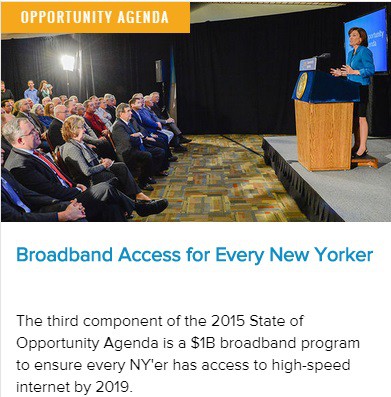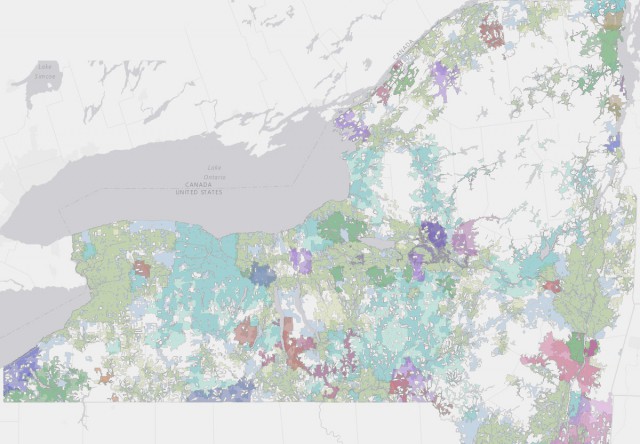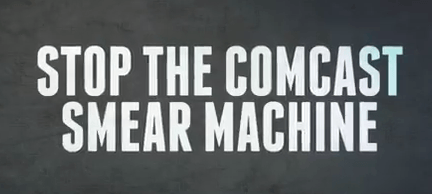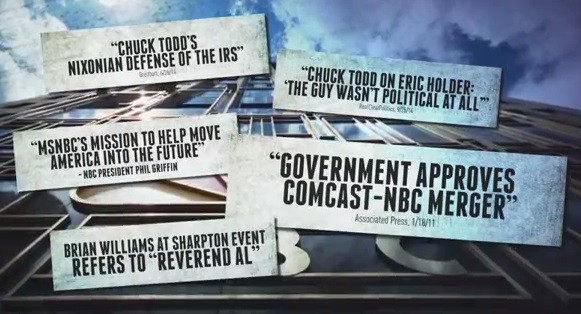 New York will see at least $1 billion in investments to expand and improve rural broadband in upstate New York to bring Internet access to every home in the state by 2019, if the state legislature approves the budget for Gov. Andrew Cuomo’s New-New York Broadband Program.
New York will see at least $1 billion in investments to expand and improve rural broadband in upstate New York to bring Internet access to every home in the state by 2019, if the state legislature approves the budget for Gov. Andrew Cuomo’s New-New York Broadband Program.
New York Lieutenant Gov. Kathy Hochul traveled to the North Country to unveil the spending plan in the broadband-challenged Adirondack region.
“Governor Cuomo’s program will be the largest universal broadband deployment in the nation, investing up to one billion dollars in both public and private resources to connect every New Yorker to high-speed Internet,” Hochul told the audience. “With a state investment of $500 million in capital funds from bank settlements the program will incentivize the private sector to expand high-speed broadband access to under-served New Yorkers. The plan will elevate broadband speeds in under-served areas to previously unheard levels including a minimum speed of 100Mbps, more than ten times the federal definition of broadband.”
New York’s newest broadband initiative comes courtesy of an unexpected windfall of more than $5 billion in legal settlements with crooked banks and mortgage companies that defrauded state residents and helped trigger the Great Recession.
At least $500 million of the settlement fund would be set aside for broadband expansion, with providers required to match any funds received from the state. Time Warner Cable is likely to be awarded a significant percentage of the money, used to expand cable infrastructure into sparsely populated areas that have never met the company’s Return On Investment requirements.
The Cuomo Administration expects little opposition to the plan, because the bulk of the broadband money would be spent in Republican-controlled rural districts and won’t come from taxpayers’ pockets.

Hochul
Republican assemblyman Dan Stec’s 114th district is a case in point. Hamilton County has little or no access to broadband service and Stec’s constituents in nearby Essex, Saratoga, Washington and Warren counties have spotty coverage. He’s thrilled the state will likely spend money on broadband in his district.
“There are towns in my district that don’t have good access to the Internet,” Stec said. “Moms and dads will drive their son or daughter and park in the parking lot of the public library or park in the parking lot of Town Hall to access a broadband wireless connection. That’s crazy. It’s nice to see the governor making the infrastructure investment that needs to be made in the North Country and frankly in all of upstate.”
Although speaking in the Adirondacks, the former congresswoman turned lieutenant governor said there are plenty of areas in western New York that also desperately need broadband access. Regional economic development committees will be responsible for identifying the most broadband-challenged areas where funding should be prioritized.
“I had [served] seven counties including Wyoming, Livingston, Ontario, Niagara, and Genesee,” Hochul said, referring to parts of the 26th Congressional District between the cities of Buffalo and Rochester she lost in the 2012 election. “The Southern Tier has challenges as well. We have a map that shows the areas which do not have the access and so we know where to have a laser focus on increasing that availability. We know New York City is in good shape. The urban areas are in good shape. So this is very much a rural initiative.”
Despite the unlikely case for any significant broadband funding headed downstate, the governor is attempting to carefully balance his overall spending initiatives between upstate and New York City, the latter now demanding a larger share of the settlement money for downstate. To avoid a budget battle between the two regional factions, Gov. Cuomo intends to bundle his spending programs together in a package presented to the state legislature as part of today’s State of the State address.

New York’s latest Broadband Availability Map, excluding well-covered downstate regions – Areas in white have no broadband access.
“He’s going to present them as part of a package: the New York State Opportunity for All program,” said Hochul. “This is one of the most significant announcements he’s going to make because it’s going to affect the lives of so many millions of people in our state. In this day and age the fastest road to opportunity is the information highway. Probably the comparable analogy would be the interstate highway system back in the 1950’s. That was able to connect communities and enhance commerce. It was transformative. It was essential in its day. That’s the opportunity that lies before us.”
Ironically, the state-funded initiative is likely to deliver faster broadband to rural New York than their more urban neighbors receive. Under the program, grant recipients will have to pledge to deliver at least 100Mbps speeds to customers, except in the most rural areas where the minimum speed requirement will be set at 25Mbps, with upgrades to come later. Most urban residents receive between 3-10Mbps DSL from Verizon or Frontier Communications and 10-15Mbps from Time Warner Cable, the largest cable company in the state. Verizon FiOS delivers even faster broadband to customers in New York City and Long Island, and selected suburbs in Buffalo, Syracuse, and Albany.
Providers will be encouraged to use state-owned institutional fiber networks, including one laid along the length of the New York State Thruway, and other government infrastructure wherever possible. That is likely to mean fiber broadband will constitute a major part of the initiative. That pleased the Fiber to the Home Council, which advocates for fiber to the home broadband service.
“The [council] commends Governor Andrew Cuomo on an ambitious plan to hit 100 Mbps in every New York home by Jan. 1, 2019,” read a statement from the Council. “This $500 Million investment into the NYS Broadband Program Office will make high-speed Internet affordable in underserved communities by incentivizing private investment, something the FTTH Council strongly supports.”
The state’s chief digital officer Rachel Haot claimed New York is doing more than any other state to invest in high-speed broadband.
[flv]http://www.phillipdampier.com/video/2015 Opportunity Agenda NY Statewide Broadband Access for Every New Yorker 1-16-15.mp4[/flv]
Upstate New York officials discuss the broadband problems in rural New York and how they spent years trying to get attention in a state where government is often focused primarily on the interests of New York City. Lt. Gov. Kathy Hochul announces a $1 billion statewide broadband improvement program. (44:42)


 Subscribe
Subscribe Time Warner Cable was named by the Better Business Bureau’s its biggest overall offender in the Charlotte region, generating 187 complaints last year, according to the group’s annual year-end report,
Time Warner Cable was named by the Better Business Bureau’s its biggest overall offender in the Charlotte region, generating 187 complaints last year, according to the group’s annual year-end report,  A conservative group has launched an assault on the Comcast-Time Warner Cable merger, accusing the cable company of cozying up to the Obama Administration and the political left in its news coverage to win corporate favors.
A conservative group has launched an assault on the Comcast-Time Warner Cable merger, accusing the cable company of cozying up to the Obama Administration and the political left in its news coverage to win corporate favors. “We intend to demonstrate to Comcast/NBC/Universal that [conservatives] have not thrived for six decades – we have not come all this way – just to cede our national and, indeed, global victories for the cause of freedom to a group of grasping corporate operatives seeking commercial and political power. So, the focus of the conservative movement needs to be not on the politicized and partisan faces of NBC or the hired slanderers at MSNBC – criticizing them just makes them more important than they are – but on the corporate ‘suits in the suites’ who are the truly culpable parties.”
“We intend to demonstrate to Comcast/NBC/Universal that [conservatives] have not thrived for six decades – we have not come all this way – just to cede our national and, indeed, global victories for the cause of freedom to a group of grasping corporate operatives seeking commercial and political power. So, the focus of the conservative movement needs to be not on the politicized and partisan faces of NBC or the hired slanderers at MSNBC – criticizing them just makes them more important than they are – but on the corporate ‘suits in the suites’ who are the truly culpable parties.”
 “EPB’s efforts have encouraged other telecom firms to improve their own service,” states the report. “In 2008, for example, Comcast responded to the threat of EPB’s entrance into the market by investing $15 million in the area to launch the Xfinity service – offering the service in Chattanooga before it was available in Atlanta. More recently, Comcast has started offering low-cost introductory offers and gift cards to consumers to incentivize service switching. Despite these improvements, on an equivalent service basis, EPB’s costs remain significantly lower.”
“EPB’s efforts have encouraged other telecom firms to improve their own service,” states the report. “In 2008, for example, Comcast responded to the threat of EPB’s entrance into the market by investing $15 million in the area to launch the Xfinity service – offering the service in Chattanooga before it was available in Atlanta. More recently, Comcast has started offering low-cost introductory offers and gift cards to consumers to incentivize service switching. Despite these improvements, on an equivalent service basis, EPB’s costs remain significantly lower.”
